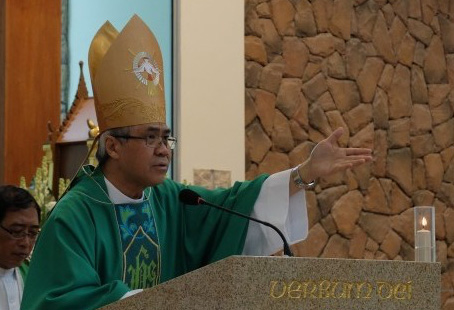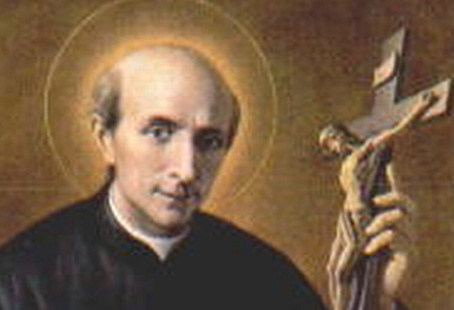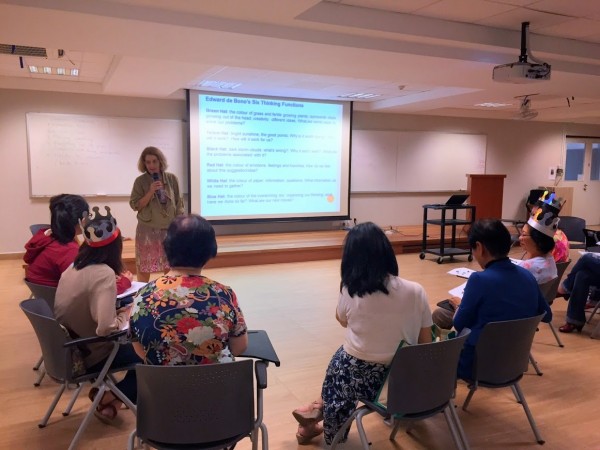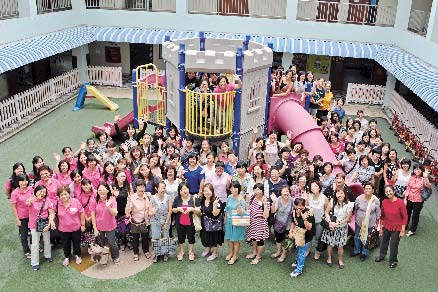By Archbishop William Goh
All three readings of this Sunday’s reading focuses on the call, a vocation in life. Every one of us is called to a particular purpose in life. In the first reading, we have Jonas who was called to preach to the Ninevites to repent and save them from disaster. In the gospel, we have Jesus who began his mission to proclaim the good news, and we have the call of the two apostles who left everything to follow the Lord Jesus. St Paul also speaks about a call. This vocation that St Paul speaks about, is not simply a vocation here on earth, but a vocation for eternity. That is why he says, “I say this because the world we know is passing away.” Our ultimate vocation in life is really to be a child of God, who share in the life and love of God. That is the ultimate vocation of everyone.
My brothers and sisters, as we come here this afternoon in this mass dedicated to principals, especially as Catholic educators, it is important for us to reflect on the vocation of the Catholic principal. This is the appropriate occasion to reflect on what the Lord is asking us to do, in order to fulfil our vocation in life. Indeed my dear brothers and sisters, we will never be truly happy in life, unless we live our vocation to the fullest.
In today’s gospel we have Jesus who began His mission to proclaim the good news and He said, “The time has come and the kingdom of God is close at hand. Repent, and believe in the good news.” How did Jesus proclaim the good news of the kingdom? Principally by teaching, by formation, and most of all, in the service of love. We know that the life of Jesus was dedicated to the healing and restoration of humanity. He wants to restore every one of us to the dignity of sons and daughters of God. So one way to proclaim the good news is to be in the service of love.
The other way to proclaim the good news, as we have read in the first reading of Jonah, is to be at the service of truth. It was not easy for Jonah to go to a pagan land and speak to the Ninevites, who were uninterested, and to ask them to repent or else they might face the consequences of their actions.
And so my dear brothers and sisters, what then is the role of the principal? At the end of the day, everybody who is called to be proclaim the good news, must be at the service of truth and love. So the challenges of a Catholic principals are really great. You know it is daunting enough to be a principal, but to be a Catholic principal, is even more daunting. And suppose you are a principal who happen to be teaching in a Catholic school, that is doubly daunting.
And why do I say this? If we want to be at the service of truth and love, then it presupposes that we are clear of what we intend to do for our children. Our young people here, what do we expect for them? What is our hope for these young people that the Lord has entrusted to us? Our hope is that they will believe in truth and in love. For them, it’s more than just simply offering them an academic formation. Academic formation is only a tool for something else.
A Catholic school has to provide beyond academic formation – a holistic formation, in terms of human, moral, psychological, and most importantly, spiritual formation. This is what makes the person human. Because every person is not simply a man, but every human person who has a soul, is seeking for God ultimately. Whether he or she recognises God or not, that is secondary.
The point is that in every human person, the heart is restless. The fact that the heart is restless, means they are seeking for the ultimate provider. That is why no one can be satisfied simply with material success. Even if you provide our young people with the best education, they can do very well academically, but there is no guarantee of happiness. Because happiness ultimately, is when we begin to see that our lives is not we for ourselves. That the skills we acquire is meant for the service of truth and love, for God, for humanity.
Anyone who studies for himself alone will never go far. In fact, he becomes a source of inhibition to society. Because he is individualistic, materialistic, he only works for himself. This is our concern for our children, our young people, the future of humanity. Otherwise we will face the same consequence of the Ninevites.
My dear principals, although your ultimate target, your audience, is your students, your immediate target, will not be your students. It will be your teachers, those who work directly under you. So principals, actually you must have two eyes, one eye to look at the future, how the students are being formed, the other eye, you have to look how the teachers are forming the students. It’s like the bishop. Actually the bishop and principal are the same.
Why do I say this? Because for me as a bishop, who is my audience? My audience is the entire people of God. But I can’t reach out to every single person in my life. Yes I make appearances, I preach to big crowds, but I cannot journey with everyone individually. So who will be my mouthpiece? My priests. So the most important group of people for the bishop will be his priests, although my goal is to serve the people. Because my priests have a direct impact to them, it is the duty of the bishop to ensure that his priests are formed, that his priests are aligned to the mission of the Church.
Similarly principals, you cannot reach out to every student. Your teachers have direct control over them. The truth is this, formation is not purely academic. Even in an academic lesson, when you start citing examples, I am sure the teacher would directly, or indirectly, convey his or her values of life.
You know when we speak of Catholic education, we are not fragmenting education – oh now its biology, now its geography, now its scripture lesson. Catholic education is not a matter of subjects. Catholic education is that the whole curriculum, all its values, are motivated by Christian principles.
Therefore I say, your immediate care must be for your teachers. Because if your teachers are not aligned with your vision and mission, and with the values of the schools, in this sense with the values of the Catholic faith, then how are they going to provide a Catholic education?
My dear educators, if truth cannot be found, then what are we doing? Isn’t education a pursuit of truth and love? And that is why for us Christians, the Catholic teaching is real. Truth and love ultimately can only be found in God. Christ for us is the fullness of truth and love. That is what the responsorial psalm says, “teach me your paths, guide me in your truth, for you are my God, my saviour”.
So the principal will have to ask himself or herself, how can we deepen our faith? Even if you are not a Catholic. If you are not a Catholic teaching in a Catholic school, I empathize with you. Because how are you going to imbibe in the values, especially when it concerns Catholic teaching. How are you going to promote a Catholic spirituality, when actually, yes perhaps you embrace it and accept it, but it is not from your heart? That is a real challenge. It is already difficult enough for many of our Catholic principals. Because not all our Catholic principals are praying every day, reading the word of God. But I hope they are! I presume that all Catholic principals are so convinced in their faith and that is why they are interested in Catholic education.
Many of our protestant Christian schools are highly respected, and many people want to enter those schools. Because people see the values that these schools uphold in terms of faith and morals. Even more than Catholics, protestant Christian parents want their children to go through such schools.
I think it is important for us to raise the standard of Catholic education in our schools. Our schools must be truly Catholic, in the fullest sense of the word. We have to ensure that education is Catholic, motivated by Catholic principles. Otherwise, I don’t see why we call ourselves Catholic schools.
Of course, in the process of imparting our faith, and we have always said, there is no way others would feel threatened, because we never proselytise. But faith has to be proclaimed! Faith has to be shared. Otherwise, they will not know the fullness of life and fullness of truth. That is why as educators, we should not only want our students to pass their exams, but also to be happy in life here on Earth. From that perspective, this is where Catholic principals, you will have to really acquire and understand the faith. We cannot teach what we have not been taught. And we want to give only the best.
I believe, my brothers and sisters, that if people send their children to a Catholic school, even if they are not Christian, the fact that they send, they are implicitly saying “my children will be for you”. If they had so much against the Catholic faith, then they would ensure their children goes to another school, in case they get indoctrinated. But the truth is, many people are happy and appreciative of the Catholic values that we impart to our young people. And therefore we should not feel defeated, but rather feel courageous, that this is what they want.
Teaching is more than just a mundane thing. In the gospel today, we have the disciples casting out nets and mending their nets, and these are mundane things people do everyday. But as teachers and principals, we may be doing the same thing everyday, but it is not mundane. That is to say, we have to be clear of our vision and mission. We have to be clear of what we want to do and how we want to help people. For me, life is really worth living, it not just going through the chores. Teachers can just go through the chores too, they can just teach, just do their work. But these kinds of teachers will not bring us far. Same for students, if you just study for the sake of studying, you won’t go far. You study because you have a mission, because there is a mission waiting for you, because there are many people waiting for you. We want to change the world, we want to empower lives, and we want to make a difference in society. Then our studies become focused, and our work becomes empowered.
And so my dear brothers and sisters, I finish by saying this. Jesus said to Andrew and peter, “Follow me, and I will make you fishers of men.” Will you allow Jesus to catch you? Before you can catch others, we need to be caught by Jesus. If Jesus has not yet caught you, then you have not fallen in love with Him. If you have not fallen in love with Him, then you will lack power in your mission.




